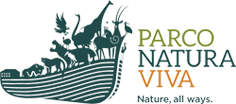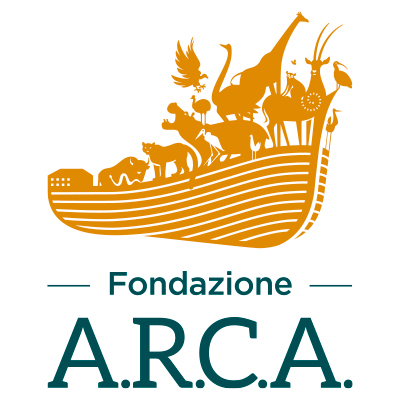May 2018
Athena and Julo, two young European bison born respectively in 2015 and 2016 in Parco Natura Viva, were released in the Tarçu Mountains Reserve in Romania, in the same place where their brothers Ulisse and Enea were brought to in 2015, together with other 15 bison.
June 2016
“Our” Ulisse seems to be settling very well in the Tarçu Mountains Reserve. Although he is younger than Birk, another male introduced with him in 2014, Ulisse has become the dominant male of a herd of 20 bison that live freely!
May 2015
After living their first year in an acclimation enclosure of 160 hectares, in order to be monitored in detail in this first delicate phase, the European bison were finally released in the Reserve and the staff of Parco Natura Viva was there for the occasion. The park donated two radio-collars which have been applied on the dominant male and female of the herd, and which will allow to monitor their movement and to collect important data on the species’ biology.
May 2014
The first release of a group of 17 bison took place in the Tarçu Mountains Reserve in Romania. Within the reintroduced bison there were two males born in Parco Natura Viva: Ulisse and Enea, born respectively in 2012 and in 2013. Initially it was expected to reintroduce only Ulisse in the autumn of 2013, however the early snowfall that took place in Romania slowed down the work, forcing the postponement of his release to spring 2014. This delay allowed Enea to grow enough to be included in the project, so the two brothers were released together in the Tarçu Mountains Reserve on the 17
th of May 2014, together with other 15 bison from other European Zoological Parks.
June 2013
Parco Natura Viva has joined a new reintroduction project in the Southern Carpathians, which foresees the return of the European bison in these areas where they’ve been extinct for over 200 years. The project includes a programme for the reintroduction in the wild of individuals born in a controlled environment, in collaboration with several European Zoological Parks.
September 2011
Other two females of European bison born in Parco Natura Viva were transferred and released in the Poloniny National Park. In collaboration with the University of Udine and Perugia, the movements of the animals equipped with radio-collars have been monitored, and faecal investigations were carried out to check the feeding of this species in the wild.
December 2008
The project to restore the bison population in the Carpathians continued with the release of a female, born in the park, in the forests of Romania, in the Rezervația de Zimbri of the Vama Buzăului.
September 2006
The first research expedition in the Poloniny Park took place with the involvement of the University of Udine and Pisa as research partners. During the expedition, the researchers had the chance to see Valentina and observe her good health state. Valentina’s value is precious as she is the first baby of European bison born free in Poloniny, since 1415. Her birth is certainly a success for all the staff of Parco Natura Viva and is giving hope for the future of this species.
March 2006
The collaboration between Parco Natura Viva and Poloniny National Park is enshrined by an agreement that establishes how the two institutions will carry on conservation and research projects on European fauna. At the same time, an adult male joined a reintroduced herd of bison and mated with Pasqualina, who then gave birth to a baby that researchers named Valentina, in honour of the patron saint of Bussolengo and in memory of the “Veronese origins” of the infant.
June 2004
Two female European bison born at Parco Natura Viva were transferred to Slovakia, in the Poloniny National Park. This movement was the first step of a project for the reintroduction of this species, in which Parco Natura Viva participated in collaboration with other European Zoological Parks and the Large Herbivore Foundation (LHF). Ittina and Pasqualina, the two females born in Parco Natura Viva, were released in Poloniny near a wild population, together with another female and two males. All individuals have been equipped with a radio-collar in order to follow their movements.
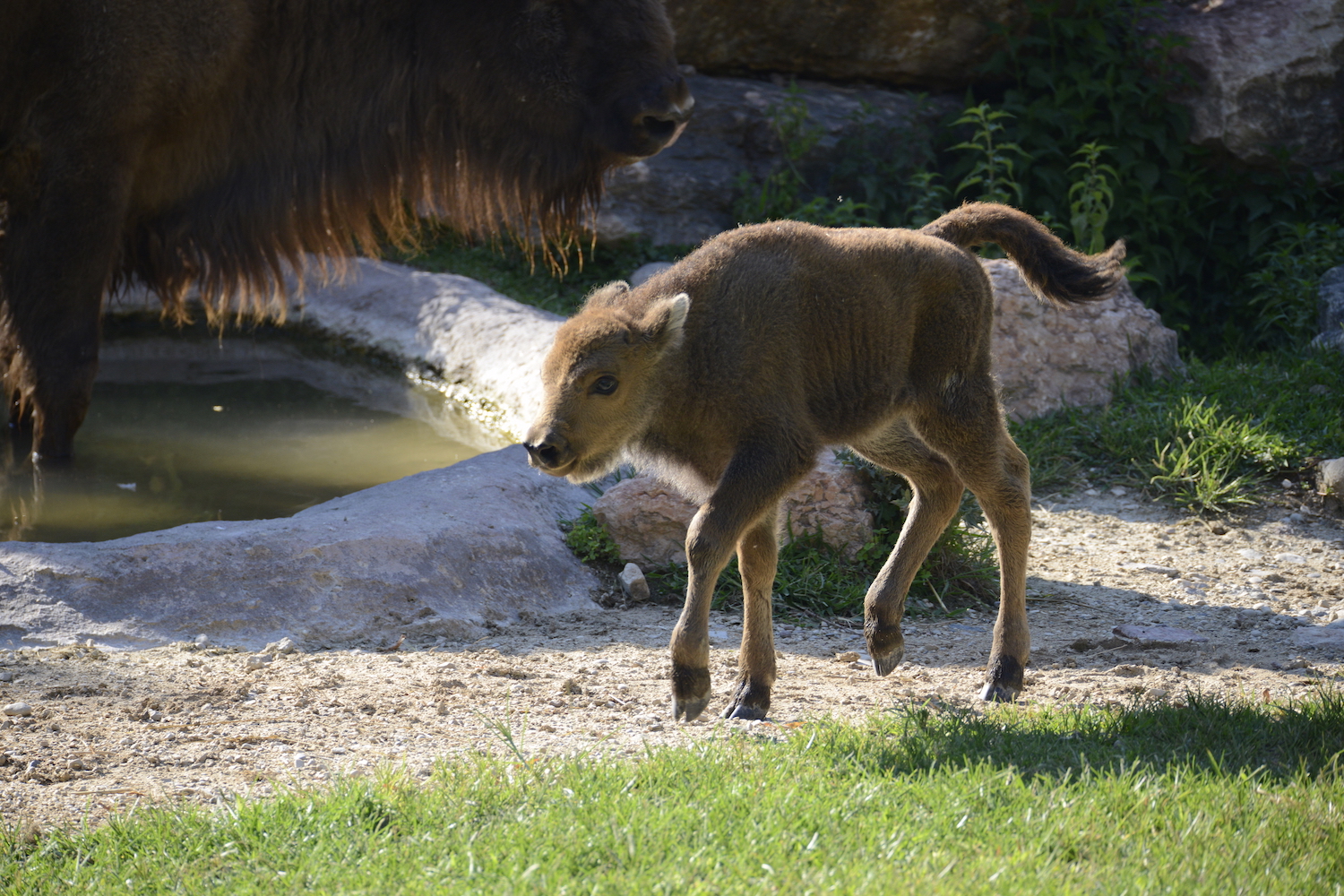
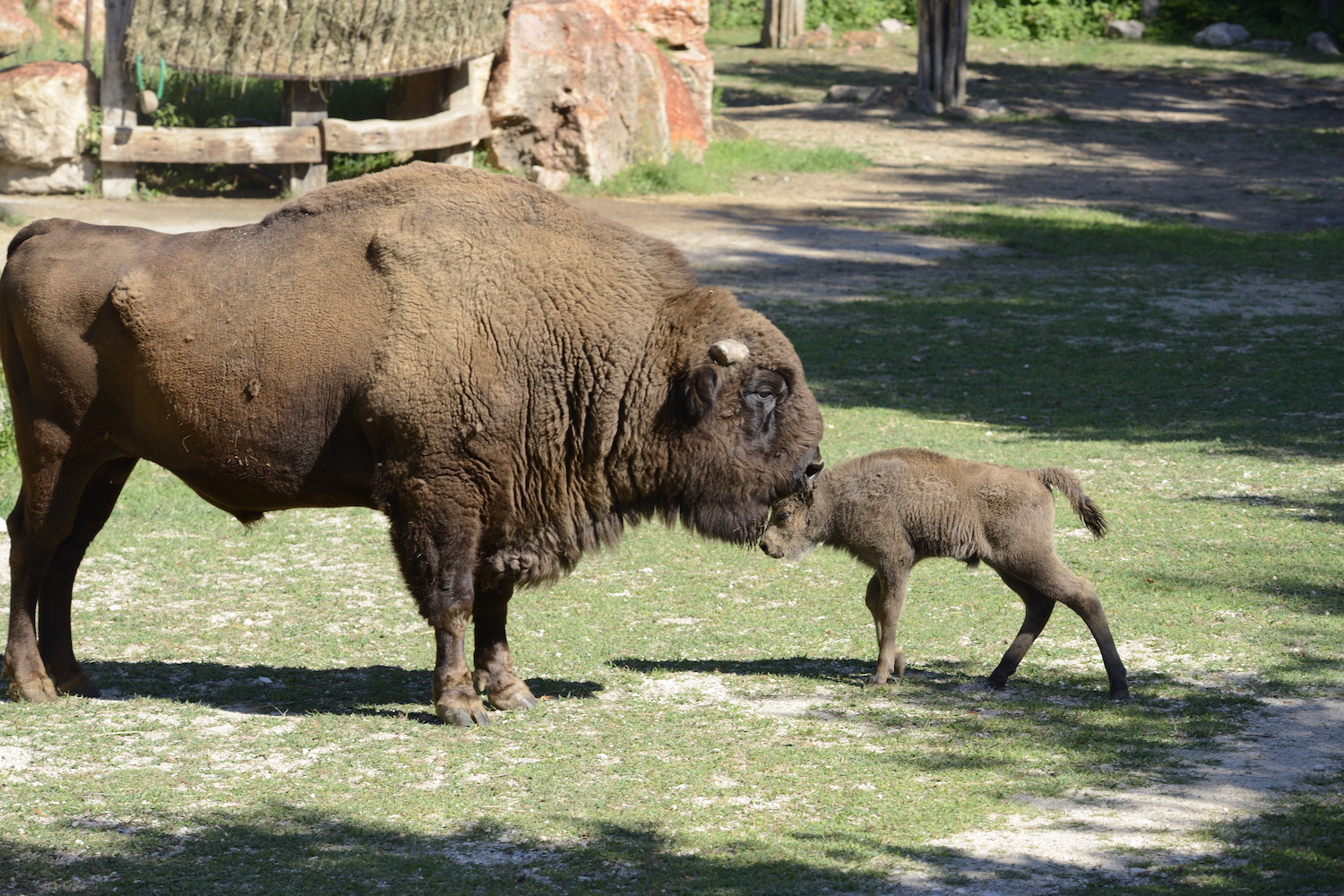
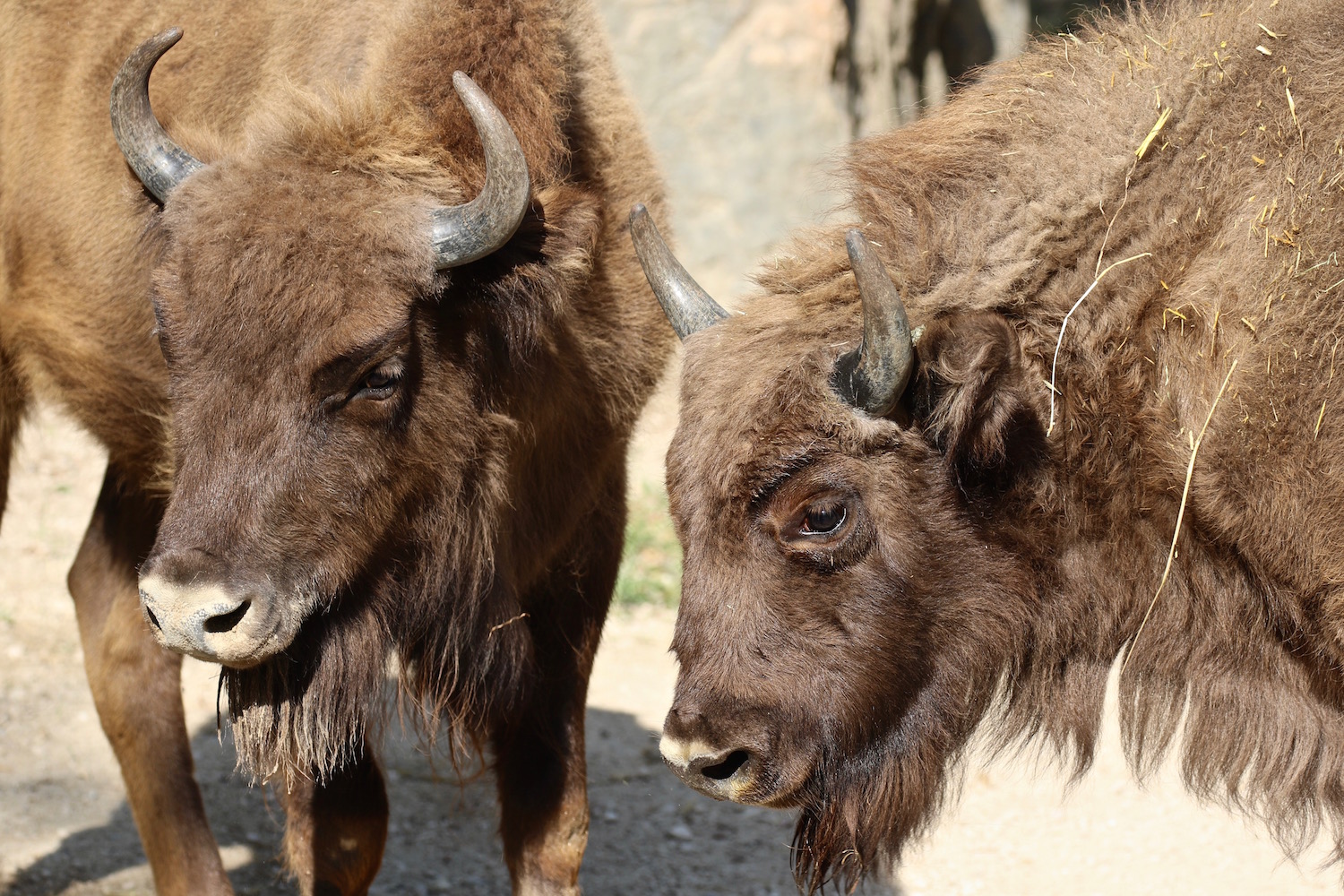
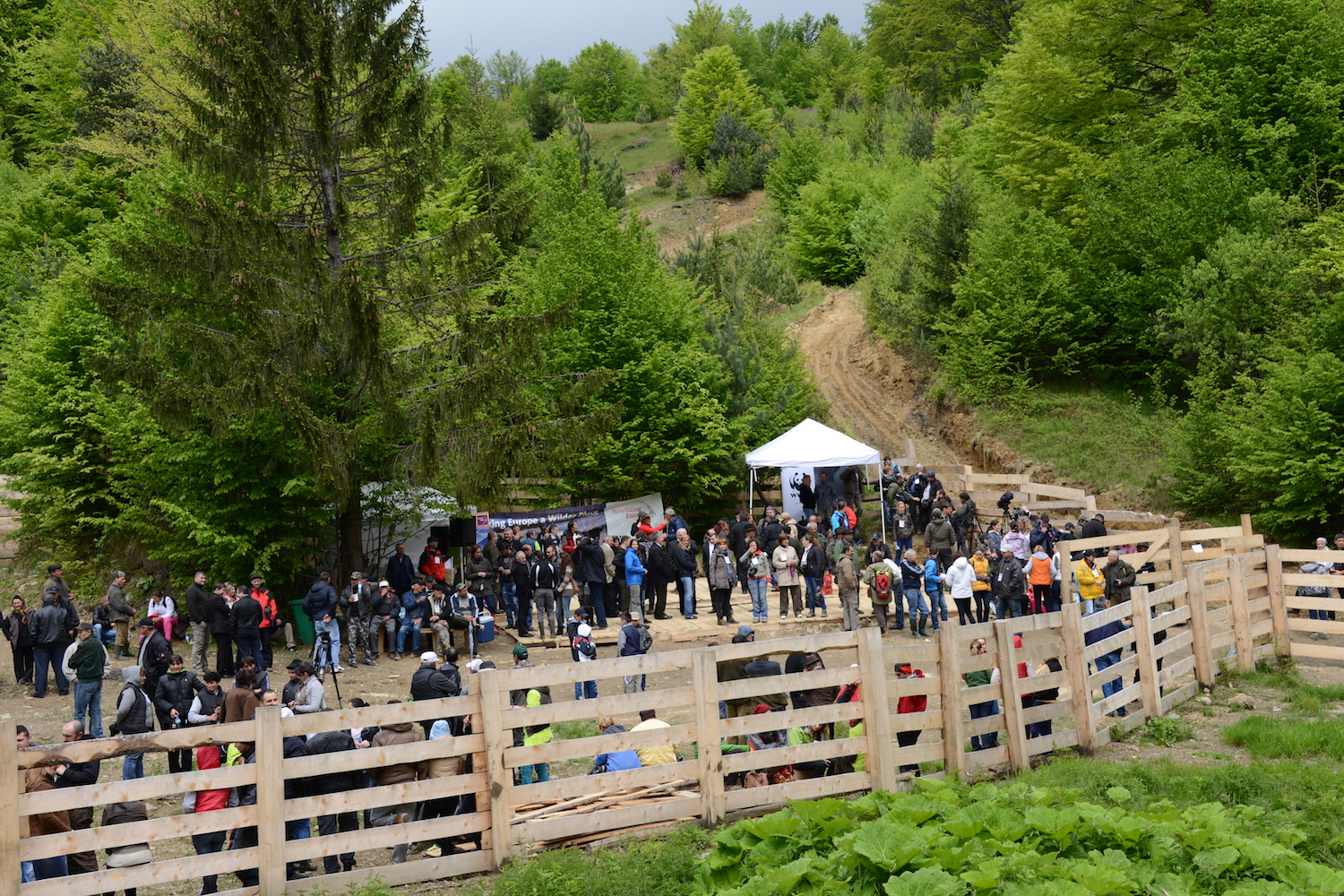
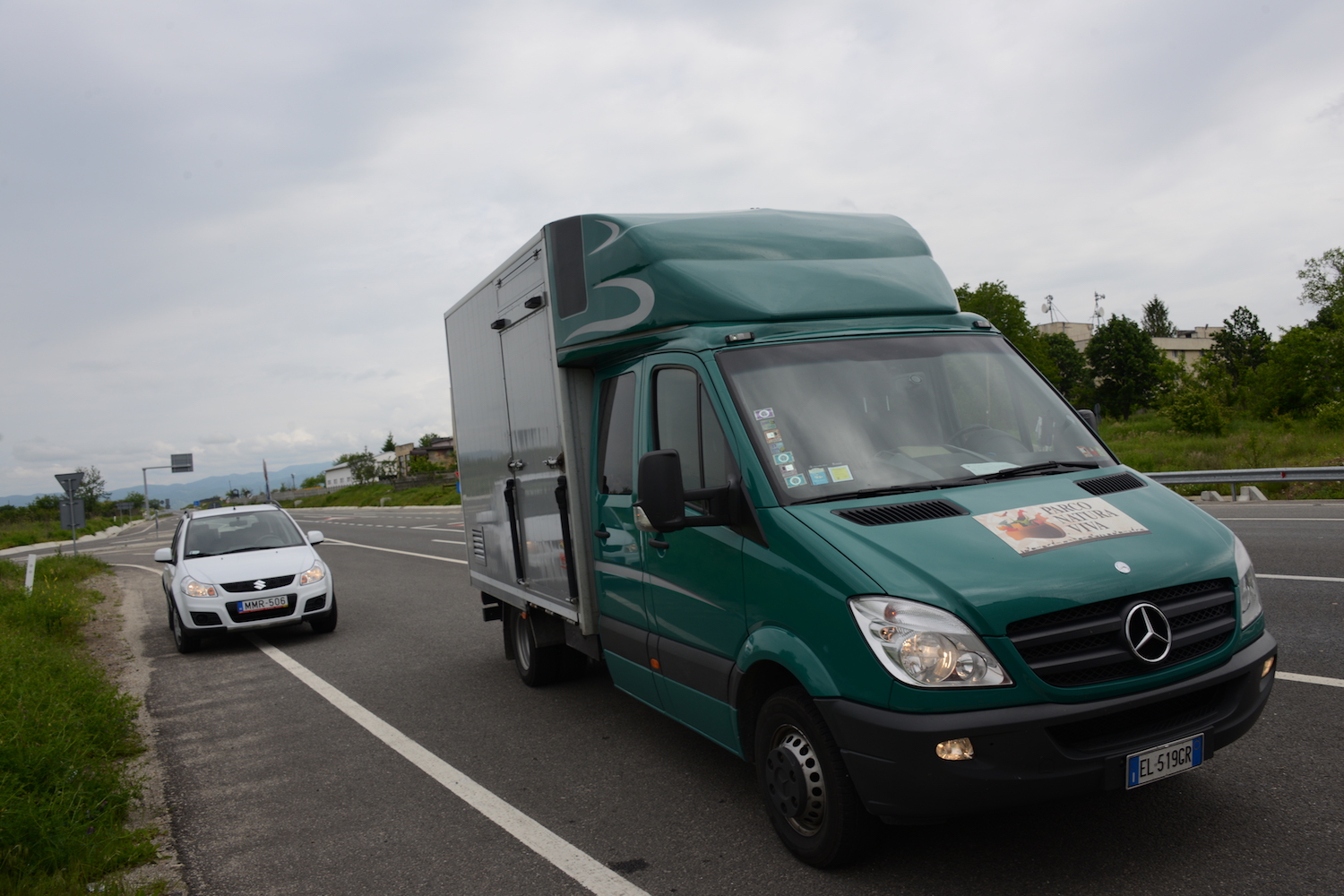
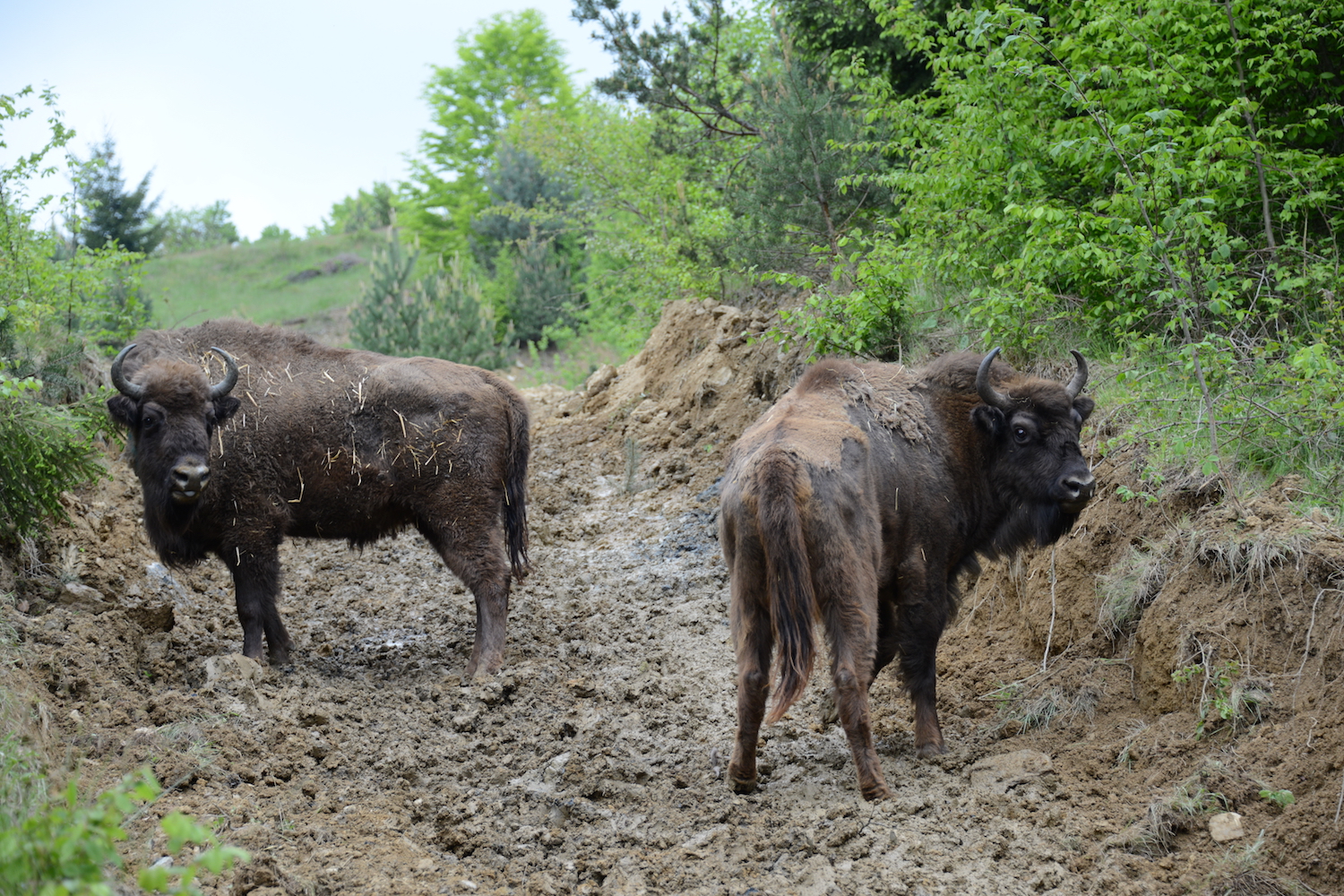
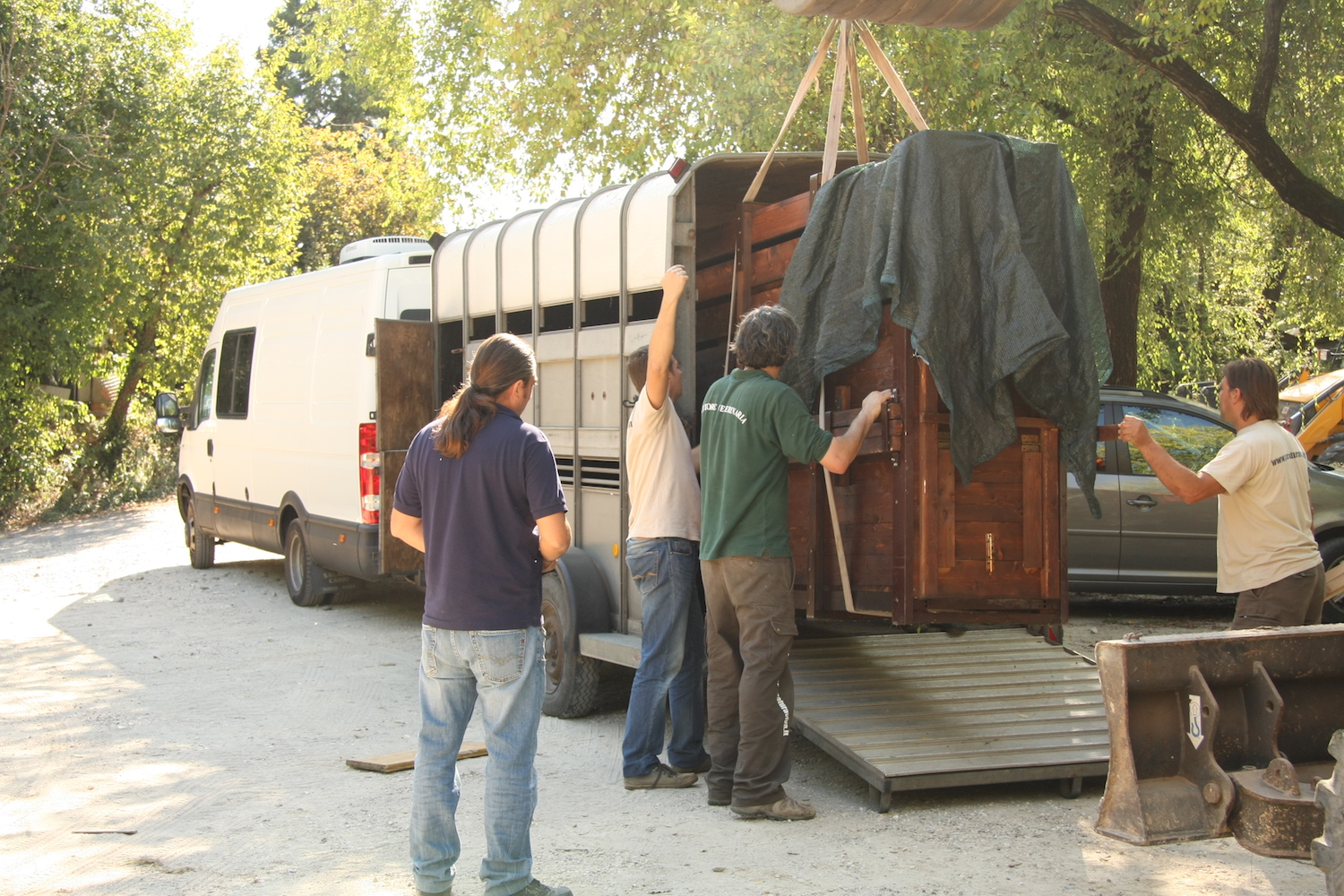
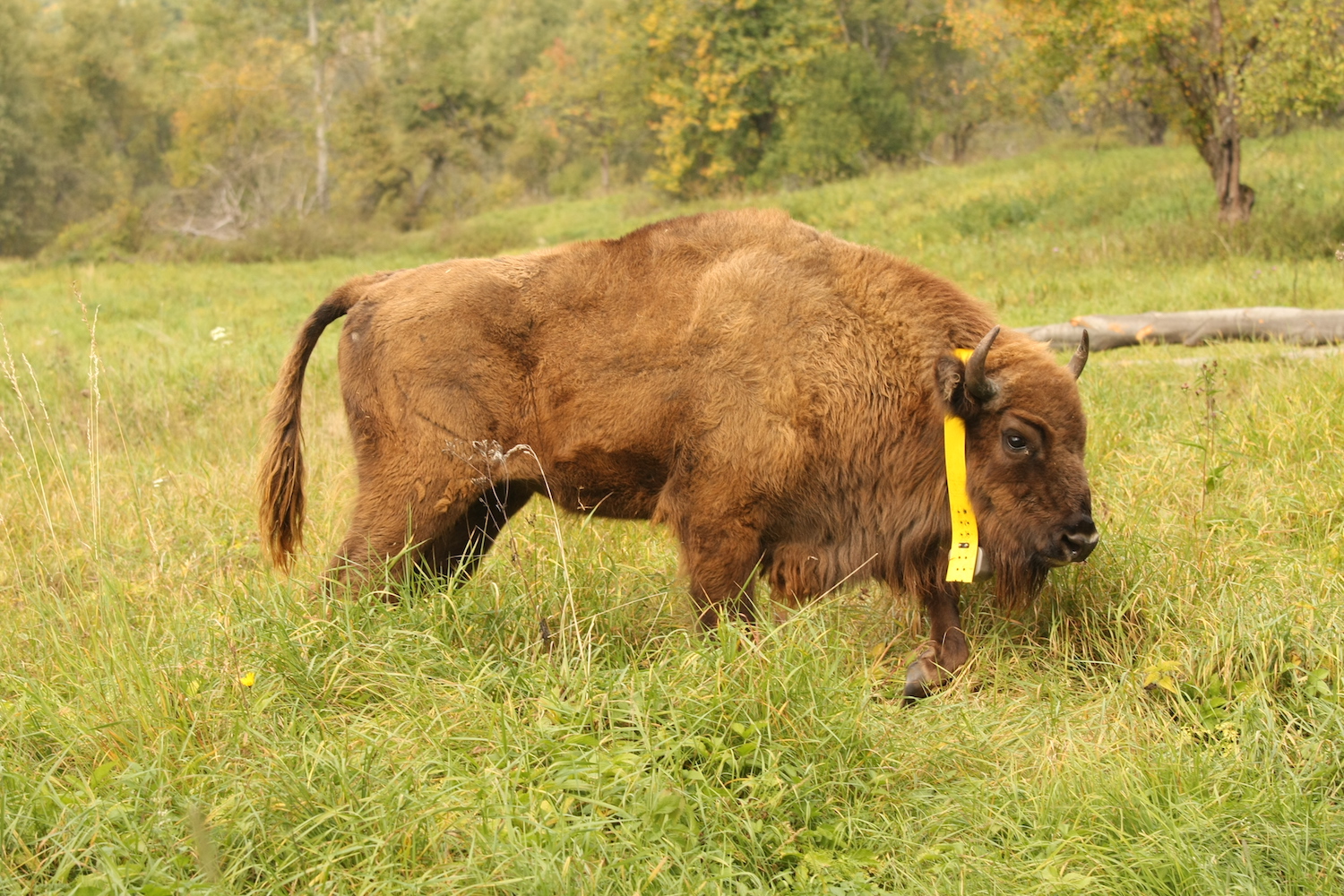
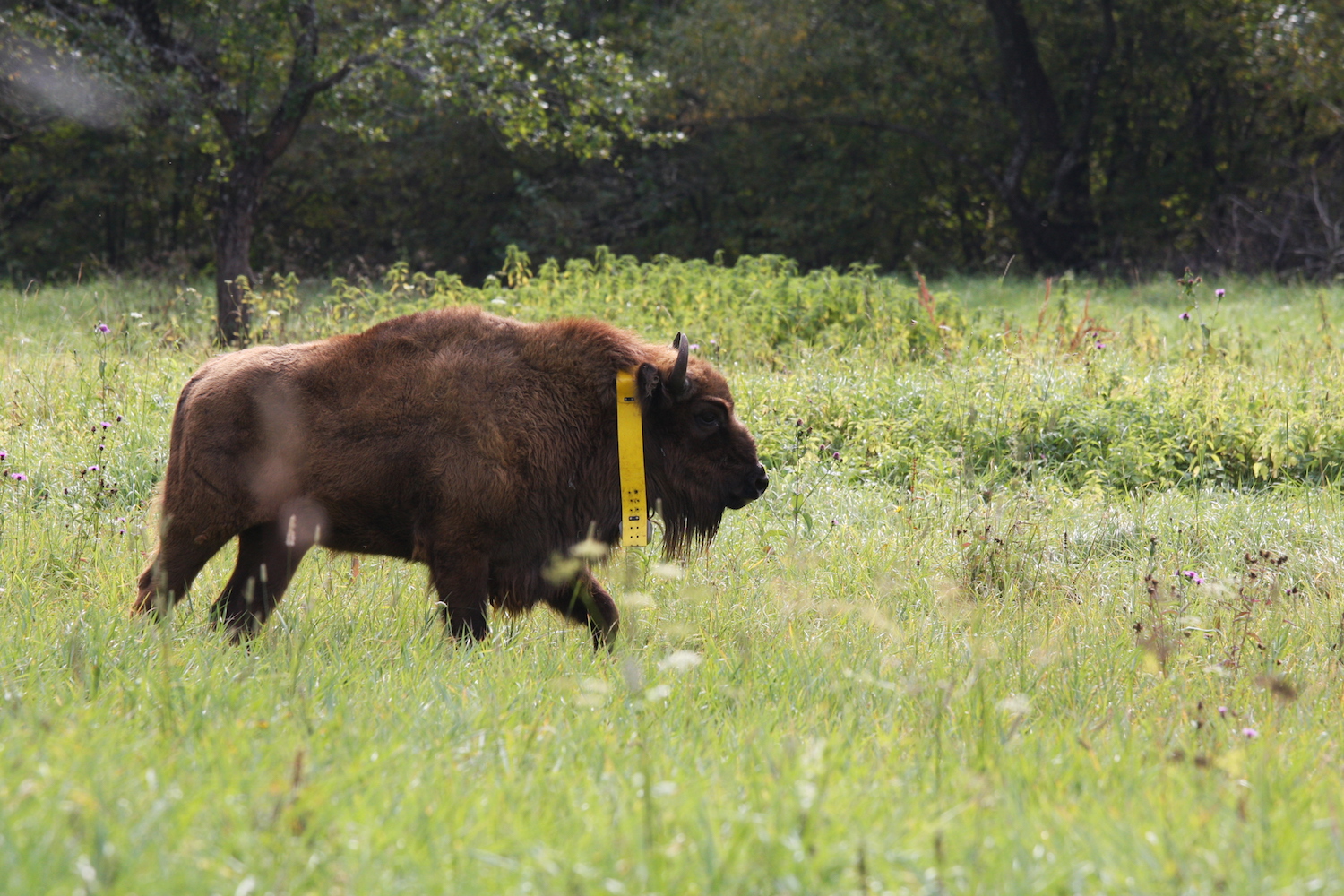
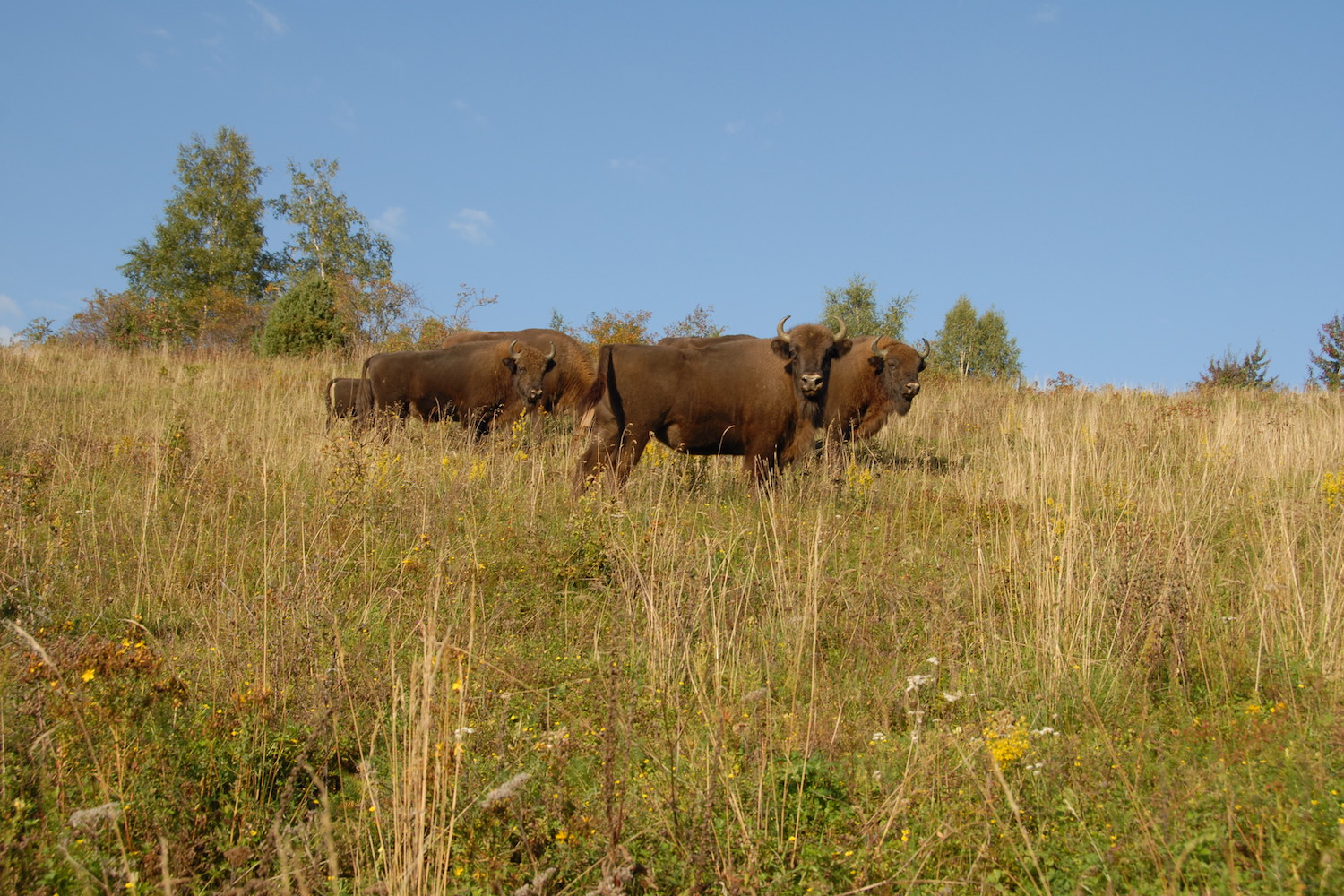
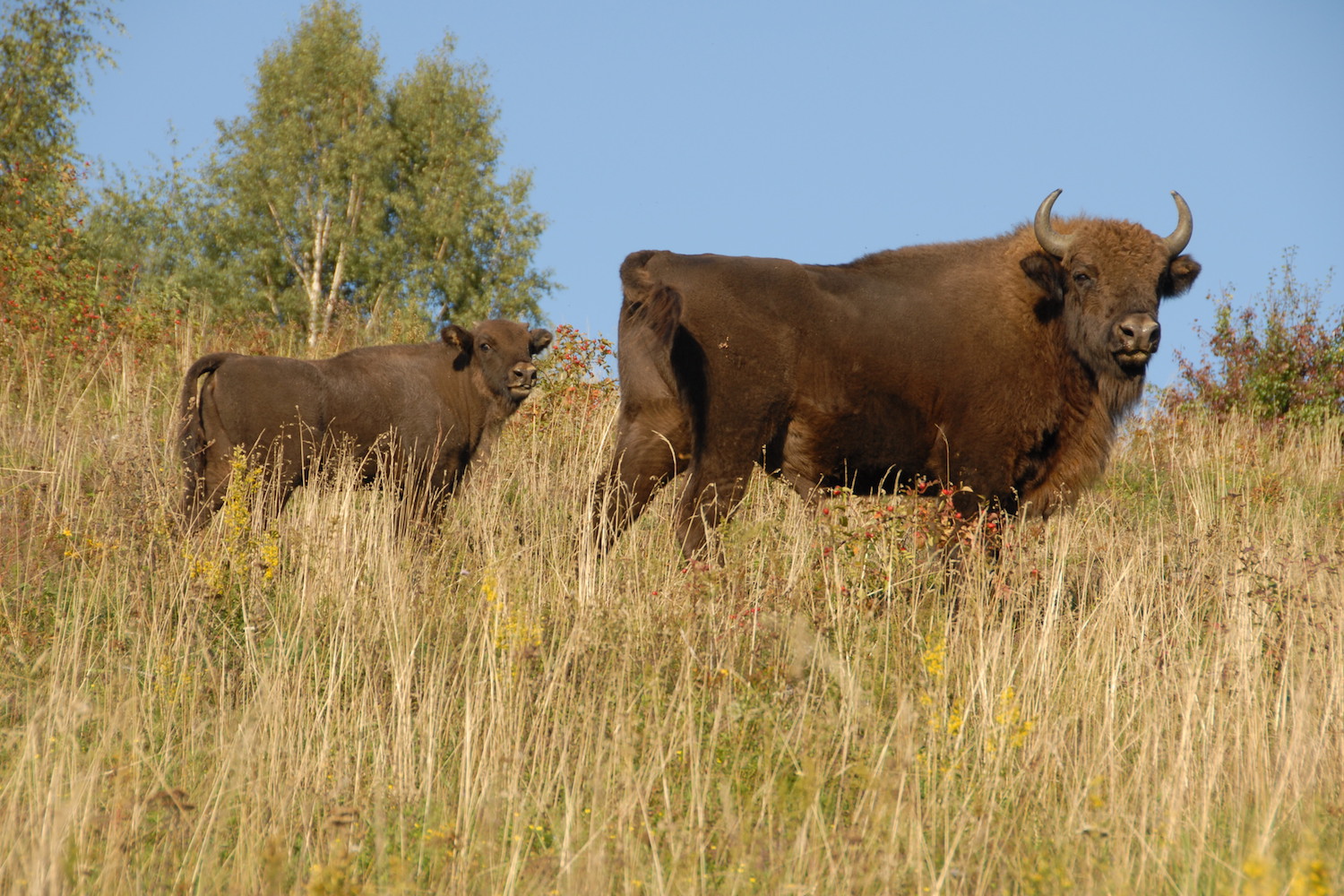
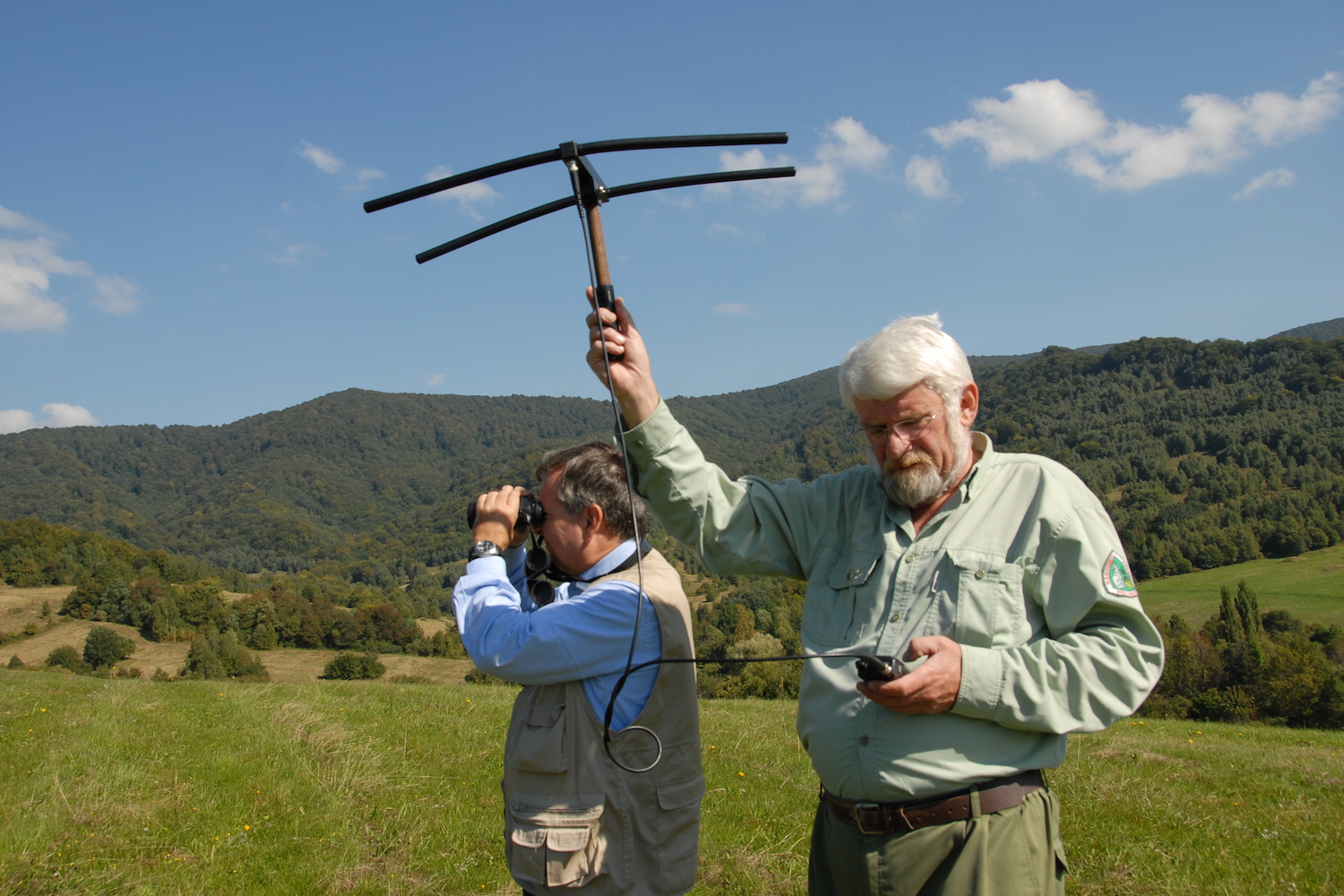
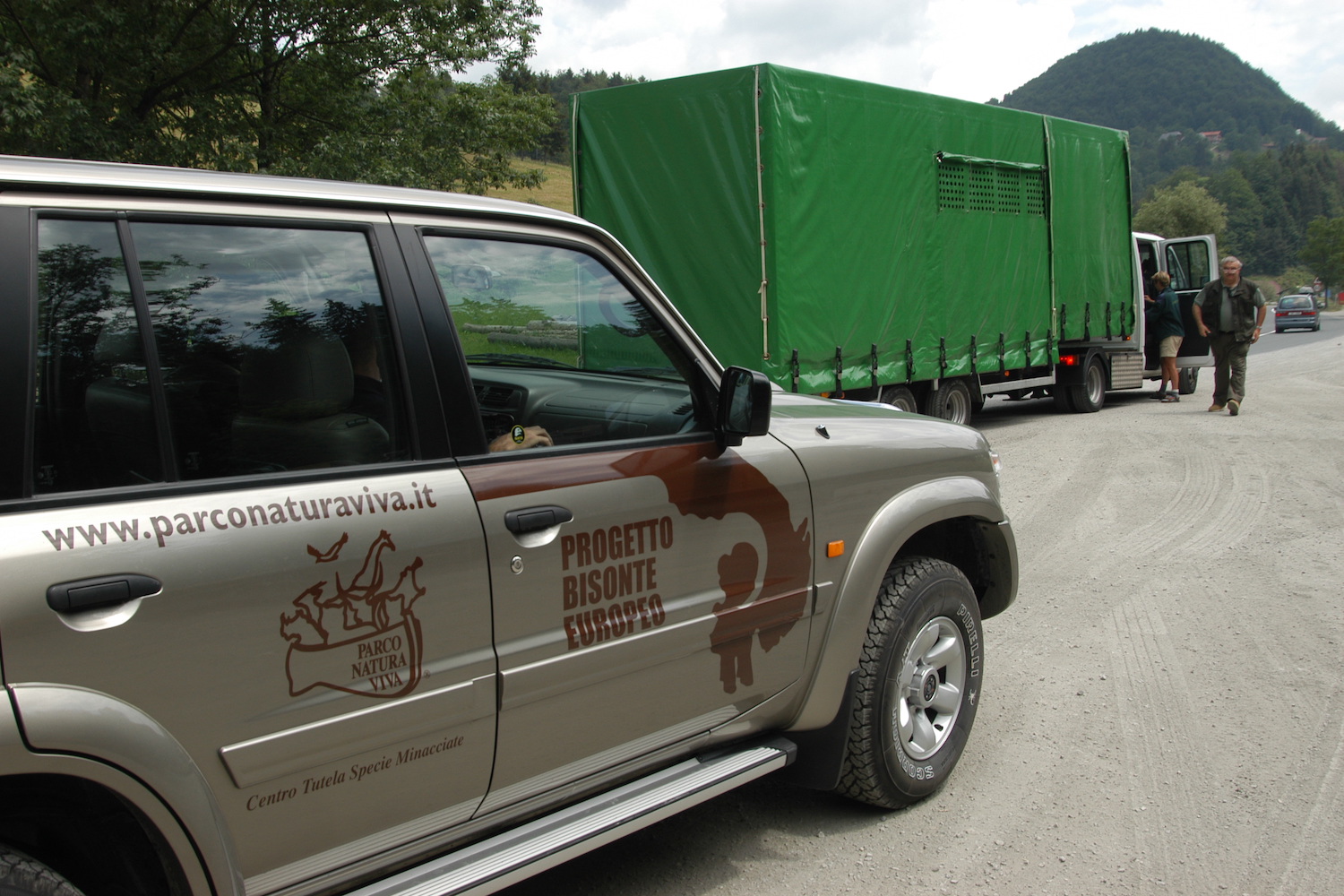
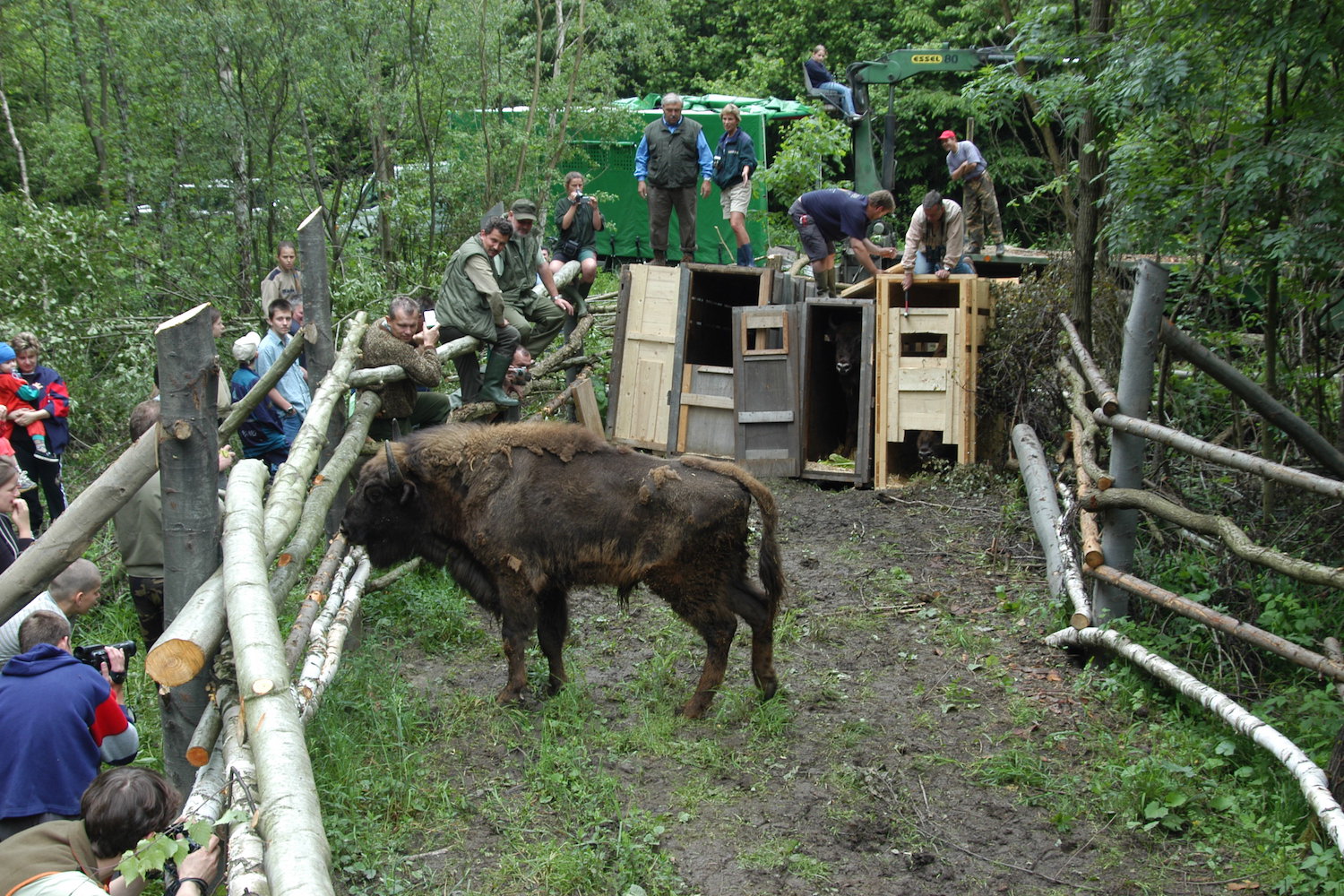
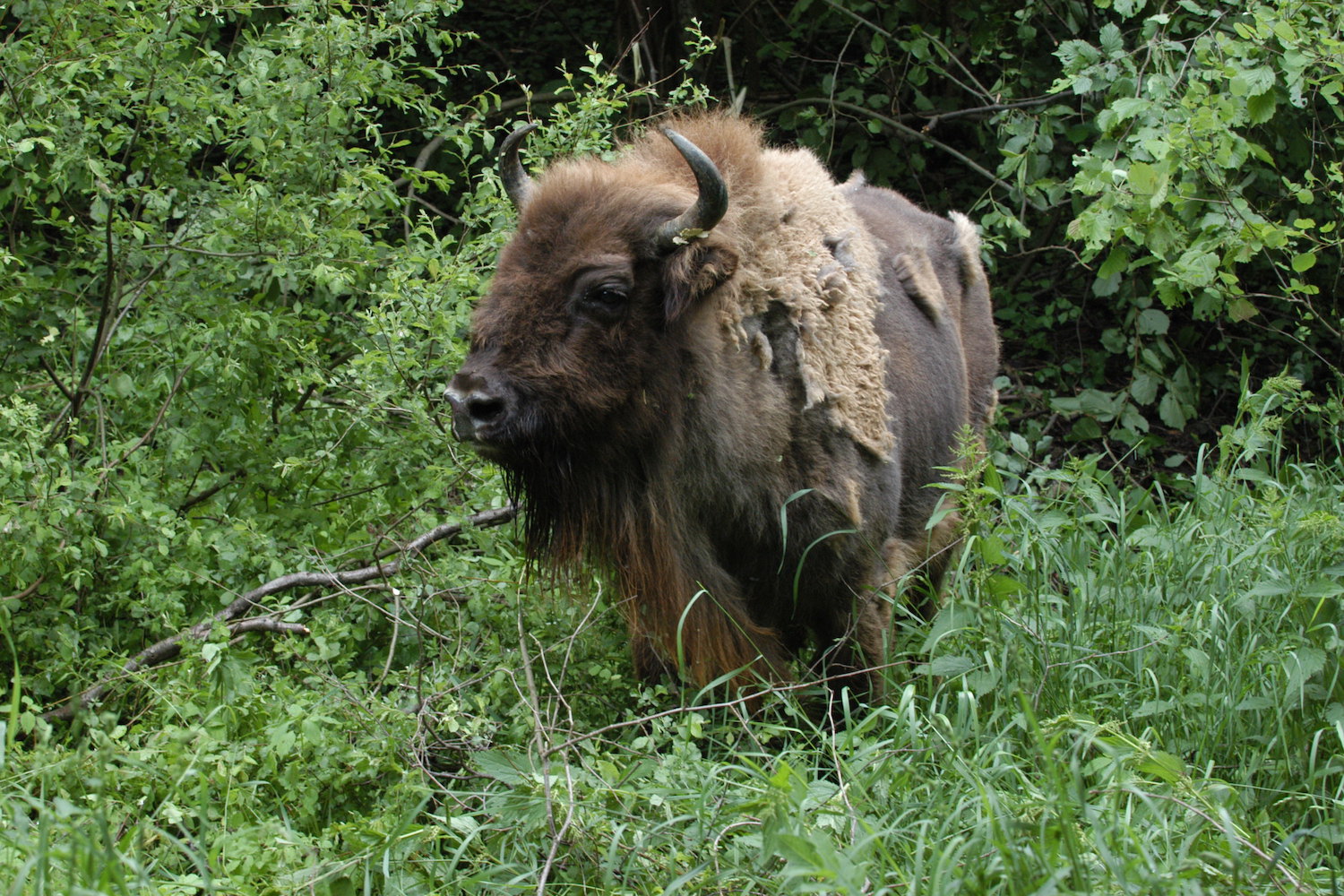
 Italiano
Italiano English
English Deutsch
Deutsch
